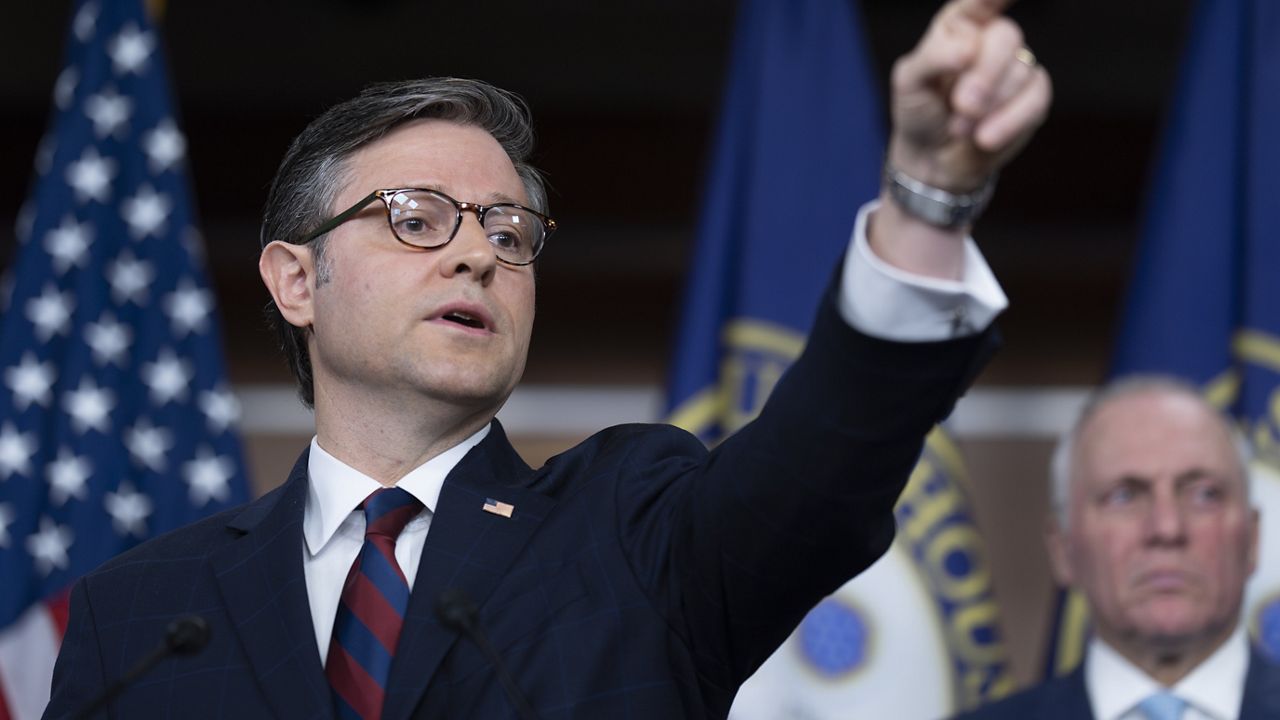House Republicans this week moved closer to inviting Israeli Prime Minister Benjamin Netanyahu to address a joint meeting of Congress, a move that is likely to put the divisions within the Democratic Party over the Israel-Hamas war in Gaza on full display.
At the Israeli embassy's Independence Day reception on Thursday, House Speaker Mike Johnson, R-La., announced that they will "soon" be hosting Netanyahu to address both chambers of Congress.
"This will be a timely and, I think, a very strong show of support to the Israeli government in their time of greatest need," the Louisiana Republican said at the event.
Two months after first floating the idea, the possibility of Netanyahu’s presence on Capitol Hill received new life this week after House Speaker Mike Johnson, R-La., told reporters he would be issuing an invitation to the Israeli leader “as quickly as possible.”
“We look forward to him coming,” Johnson said, adding that he has spoken to Netanyahu about it personally.
Asked about whether Senate Majority Leader Chuck Schumer, D-N.Y., would sign off on an address in front of both chambers, Johnson told reporters that members of both of their staff were in touch and it “seems as though” the New York Democrat was open to the idea.
Schumer told reporters this week he was discussing the possibility with the speaker.
“As I’ve always said, our relationship with Israel is ironclad and transcends any one prime minister or president,” Schumer added.
Earlier this week, Johnson said he would proceed with inviting Netanyahu to address the House if Schumer did not sign on.
But the move puts Schumer in a sticky position as some in his party have grown highly critical of Israel’s actions in Gaza, where the Palestinian civilian death toll has mounted and the humanitarian crisis worsened.
Johnson first floated the idea of inviting the Israeli leader just about a week after Schumer himself – who is the highest-ranking Jewish elected official in U.S. history – went to the Senate floor to call for the removal of major obstacles to a two-state solution between Israelis and Palestinians, including Netanyahu, and recommend the country hold new elections.
And already, a number of progressive lawmakers have spoken out sharply against the possibility of Netanyahu’s appearance on the Hill.
Sen. Bernie Sanders, I-Vt., a prominent progressive and critic of Netanyahu, called it a “terrible idea” in an interview on CNN Wednesday night and said he would not attend if it did in fact take place.
“I just don’t think its constructive for Netanyhu to be doing a joint address in this moment period,” Rep. Alexandria Ocasio-Cortez, D-N.Y., said on Thursday.
It also comes about only two weeks after President Joe Biden told CNN that he would pause future shipments of American weapons to Israel that could be used in a major ground operation on Rafah – the southern Gaza city where more than one million civilians have been taking shelter. On the same day, Defense Secretary Lloyd Austin confirmed that the U.S. had already halted one shipment of bombs over such concerns.
Biden has made clear he does not support such a move without a plan to protect civilians.
Israel has moved forward with operations in Rafah, although the U.S. says such actions have yet to amount to the scale that would trigger more weapons being halted.
Biden’s move to pause the shipment led Republicans to accuse the commander in chief of waning on support for Israel, despite the U.S. leader pledging his commitment to Israel’s security is “ironclad.”



